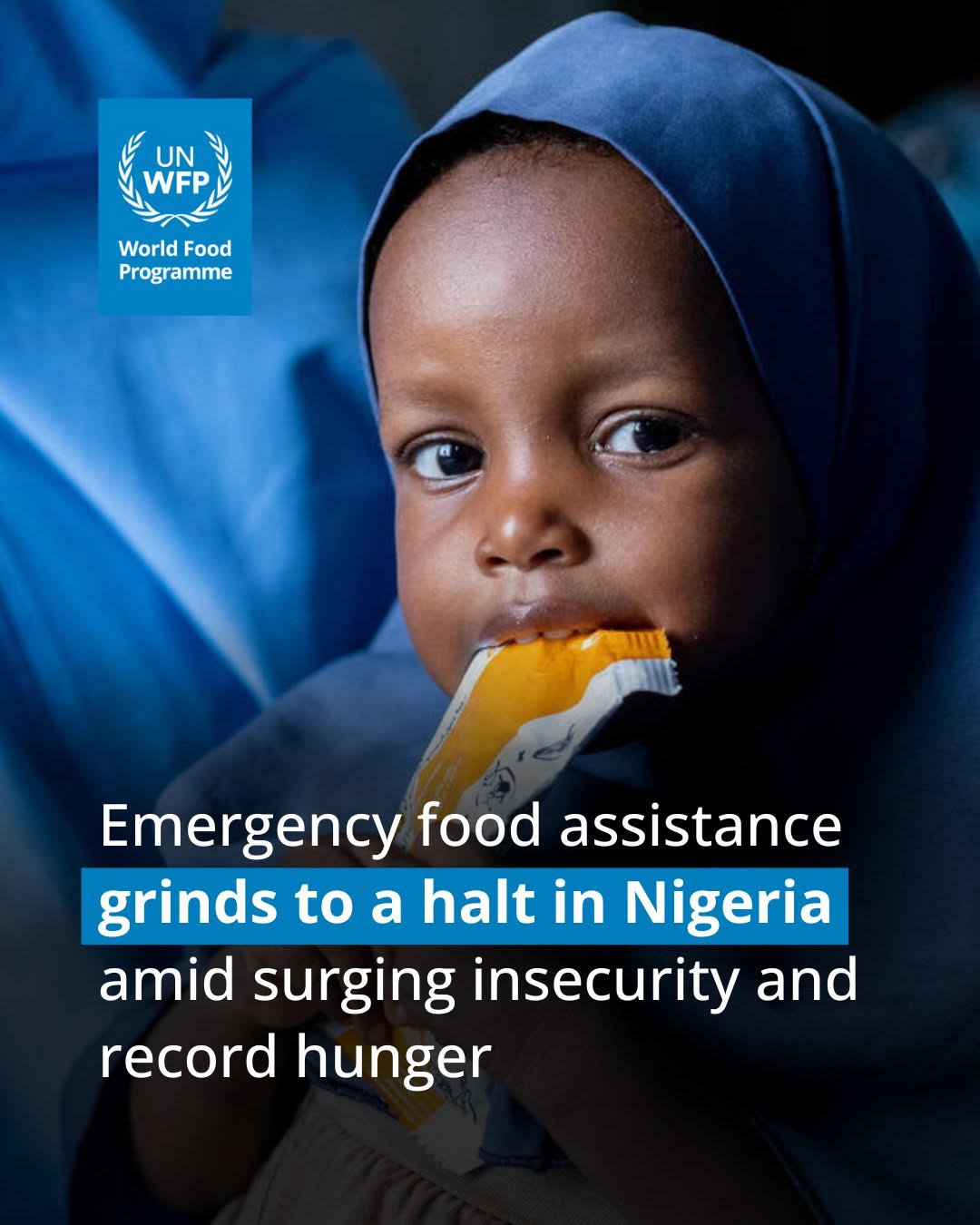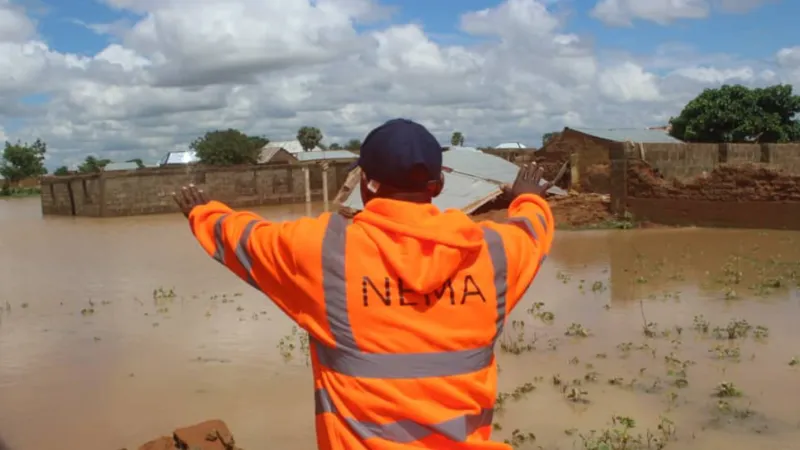Dennis Gabriel in Abuja
The United Nations World Food Programme (WFP) has announced it will be forced to suspend all emergency food and nutrition aid for 1.3 million people in northeast Nigeria at the end of July due to critical funding shortfalls.
WFP warned that a critical funding gap is paralysing its operations, adding that an urgent US$130 million is required to prevent an imminent pipeline break and sustain food and nutrition programmes through to the end of 2025.
The announcement was contained in a statement issued by the organisation on Wednesday on its website.
According to WFP Country Director for Nigeria, David Stevenson, food and nutrition stocks have now been completely exhausted, with the organisation’s last supplies leaving warehouses in early July. Life-saving assistance is expected to end once the current round of distributions is completed.
“Nearly 31 million people in Nigeria are now facing acute hunger, a record number,” Mr Stevenson said.
“At the same time, WFP’s operations in northeast Nigeria will collapse without immediate, sustained funding. This is no longer just a humanitarian crisis, it’s a growing threat to regional stability, as families pushed beyond their limits are left with nowhere to turn.”
Children are expected to be among the worst affected if vital aid ends, with more than 150 WFP-supported nutrition clinics in Borno and Yobe states set to close. This would halt potentially life-saving treatment for over 300,000 children under the age of two, placing them at heightened risk of wasting.
In the conflict-affected northern areas, escalating violence by extremist groups continues to drive mass displacement. According to WFP, some 2.3 million people across the Lake Chad Basin have been forced to flee their homes, straining already limited resources and pushing communities to the brink.
“When emergency assistance ends, many will migrate in search of food and shelter. Others will adopt negative coping mechanisms – including potentially joining insurgent groups – to survive,” Mr Stevenson warned.
“Food assistance can often prevent these outcomes. It allows us to feed families, help rebuild economies, and support long-term recovery.”
During the first half of 2025, WFP reached 1.3 million people in northern Nigeria with life-saving food and nutrition assistance. Support for an additional 720,000 people had been planned for the second half of the year before funding shortfalls placed these programmes in jeopardy.



